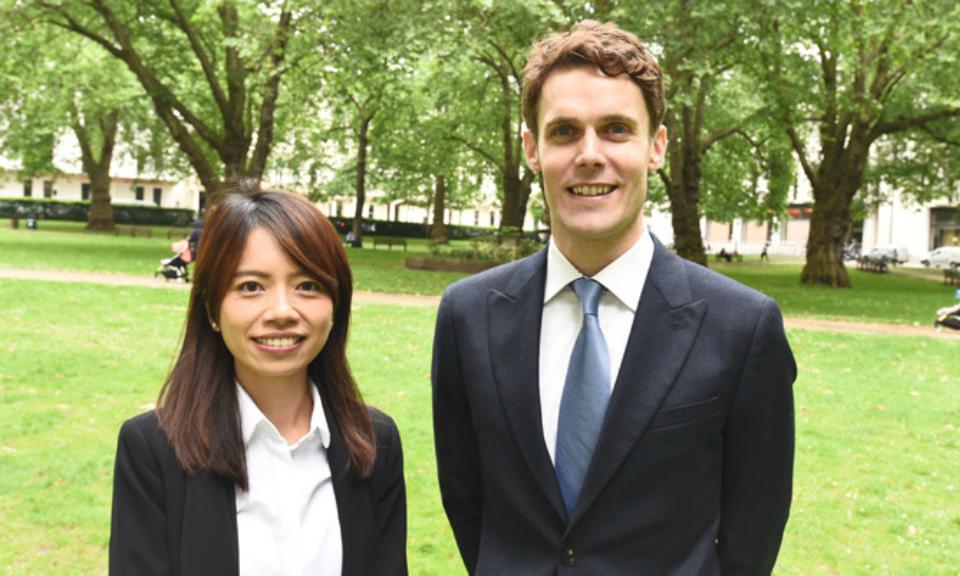
To get someone to quit smoking, give them achievable goals and put a smile on their face
Getting people to change any kind of behaviour, big or small, is a tough task. Just think of all the things your significant other does that annoy you: checking their smartphone the moment it buzzes; texting in the cinema; browsing Instagram, Facebook or Grindr while having a face-to-face conversation. It’d be so easy for them not to do to it, so why do they find it so hard?!
If it is already so hard to change the little things, what about when you want someone to change their behaviour for a really important reason: say, to quit smoking? Could their smartphone, source of so much rage, actually help them to do it?
To answer this question, we collaborated with a group of Imperial alumni who co-created Quit Genius, a cognitive behavioural therapy-based app that helps people quit smoking. Specifically, we asked: how do you design such an app to change people’s behaviour? What design elements are important? We studied the app’s users and our findings were surprising.
Try to help others think about the behaviour they (or you) want to change in a different way, and add to their happiness today
Inspired much?
It turns out that efforts to inspire users actually had a negative effect on their success at quitting. When the app tried very hard to motivate users to be the person they ideally wanted to be – and made explicit efforts to inspire them to live a healthier life – it seems that, for a lot of people, it was simply overwhelming.
As anyone with an overachieving older sibling will attest, feeling constantly measured against a ‘better’ version of yourself isn’t helpful. The person you are told you could be quickly comes to feel like the person you should be, and every time you are not them you feel like a failure. But smoking is an addiction. It’s incredibly hard to give up. People, it would seem, felt overwhelmed by the pressure that the messages of inspiration placed on them, and ended up comforting themselves – by smoking.
It’s a simple smile wot won it
So, what design elements of the app did help people change their behaviour? The answer: those offering hedonic well-being and psychological empowerment.
The founders of Quit Genius
Let’s look at hedonic well-being first (and offer a little explanation for those less up on their Greek). When the app contributed to people’s daily happiness, increasing their overall life satisfaction, and helping them to be more productive at work, it also helped them change their behaviours significantly. This involved the app’s aesthetic presentation (lots of lovely clouds, fun symbols and pretty mountains) but also how it framed content: functional descriptions gave people achievable goals, while an acknowledgement of special occasions helped. An endearing name, a heart-warming story, a gentle touch or a caring word in our daily lives does matter.
We are surrounded by negative headlines and depressing news stories; we feel overwhelmed by society’s pressure to be perfect. When we try to change other people’s behaviour – or indeed our own – it seems a simple, innocent smile goes a long way, even in the digital age.
Hedonic well-being, however, was only one element of the app’s design that facilitated behavioural change; the second was psychological empowerment. When Quit Genius offered information or a user journey that helped people think about smoking in a different way, it had a significant effect on their likelihood to smoke less or quit smoking altogether.
We are surrounded by negative headlines and depressing news stories; we feel overwhelmed by society’s pressure to be perfect
The way we look at the world creates meaning for us. One way to affect change digitally is to make people see a different point of view. Often we get stuck in our own way of thinking and cannot find a way out. A subtle balance of not being too simple and not being too challenging – such as giving someone a new piece of information – may go a long way.
Now what?
What then do these findings mean for the effective design of mobile apps or businesses, or even for leaders more generally? Can we motivate people to change their behaviours – even the ones that are incredibly hard to change? Well, yes.
Try to help others think about the behaviour they (or you) want to change in a different way, and add to their happiness today, even if only in a small way. Try to avoid inspiring them to death.
Our research has focused on getting people to stop smoking; would our conclusions apply in other contexts? What about getting people to work harder, buy into an organisation’s cultural change, visit a website more often, or spend more money through an app? Do rainbow unicorns really exist? These are all questions richly deserving of additional research. And who knows, we may be able to find answers to some of these! So, watch this space.
This article draws on finding from “Effective Behavioral Changes through a Digital mHealth App: Exploring the Impact of Hedonic Well-Being, Psychological Empowerment and Inspiration” by Yuting Lin and Professor Andreas B. Eisingerich, published in JMIR mHealth and uHealth.



